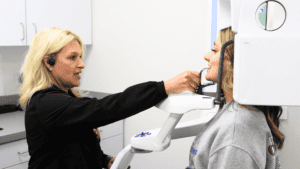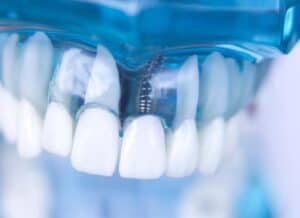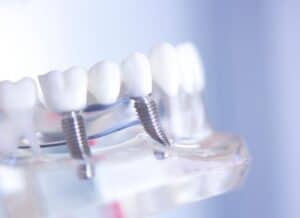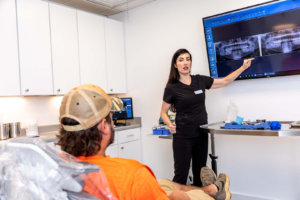In the journey of oral health, wisdom teeth often emerge as a source of curiosity, concern, and sometimes, discomfort. These third molars typically make their appearance during the late teenage years or early adulthood, signaling a new phase of dental development. While some individuals may experience no issues with their wisdom teeth, others may encounter complications that require their removal. We know the process of acquiring and potentially removing your wisdom teeth can be confusing. That’s why we offer expert advice and compassionate care to empower you on your oral health journey.
This article provides an in-depth look into wisdom teeth to hopefully demystify their existence.
Understanding Wisdom Teeth: Nature’s Curious Addition
Wisdom teeth, also known as third molars, are the last set of molars to emerge in the mouth, typically appearing between the ages of 17 and 25. Historically, these teeth served a practical purpose in our evolutionary past, providing additional chewing power to aid in the consumption of coarse foods. However, as our diets and lifestyles have evolved, the need for wisdom teeth has diminished, often leading to complications when these teeth attempt to erupt in a crowded or misaligned jaw.
The Importance of Wisdom Teeth Care: Navigating Potential Complications
While some individuals may experience no issues with their wisdom teeth, others may encounter a variety of complications and that is when oral surgeons begin to promote their removal. Common problems associated with wisdom teeth include:
- Impaction: When there is not enough room in the jaw for the wisdom teeth to fully develop, they may become impacted, causing pain, swelling, and potential infection.
- Crowding: Wisdom teeth can exert pressure on neighboring teeth as they attempt to come through the gums, leading to crowding, misalignment, and bite problems.
- Infection: Partially raised wisdom teeth can create pockets of space where bacteria can accumulate, increasing the risk of infection and gum disease.
- Cysts or Tumors: In rare cases, wisdom teeth may develop cysts or tumors, which can cause damage to surrounding teeth and tissues if left untreated.
Wisdom Teeth Removal
In cases where wisdom teeth are causing discomfort, crowding, or other complications, wisdom teeth removal will likely be recommended. This surgical procedure involves the extraction of one or more wisdom teeth to alleviate symptoms and prevent future problems. At Tennessee Valley Oral Surgery, our team of experienced oral surgeons specialize in wisdom teeth removal, providing expert care and compassionate support to patients of all ages.
Expert Advice and Compassionate Care: The TVOS Difference
What sets Tennessee Valley Oral Surgery apart? Beyond our expertise in wisdom teeth removal and oral surgery, we pride ourselves on our commitment to patient-centered care and compassionate support. From the initial consultation to post-operative follow-up, our team is dedicated to treating you like family, ensuring your comfort, safety, and satisfaction every step of the way. With state-of-the-art technology, advanced techniques, and a personalized approach to treatment, we strive to make your wisdom teeth removal experience as smooth and stress-free as possible.
Navigating Wisdom Teeth with Confidence and Care
Wisdom teeth may present unique challenges on the journey to optimal oral health. Whether you’re experiencing discomfort, crowding, or other complications related to your wisdom teeth, know that expert advice and compassionate care are just a phone call away. At Tennessee Valley Oral Surgery, we’re here to guide you through every aspect of your wisdom teeth journey, from diagnosis to treatment to recovery. With our unwavering commitment to excellence, patient-centered care, and dedication to your well-being, you can trust us to provide the expert care and support you need to navigate your wisdom teeth experience with confidence and comfort.

Schedule an Appointment Today
Are you a patient in the Knoxville, Lenoir City or Maryville, TN area needing oral surgery?
Have More Questions?
Check out our frequently asked questions to get more answers about your oral surgery procedure.
















